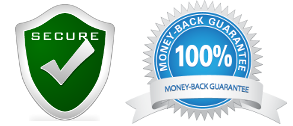Alcohol (ethanol), to the surprise of many, is a drug. Alcohol is a legal drug in many countries and one that is widely accepted. To the point that it’s “weird” when someone is not drinking at a party or social event.
But, does the legality of a substance, plus its social acceptance, qualify alcohol as a safe drug for the consumer?
Stats on Alcohol Emergencies, Economical burden and Deaths, by the NIH:
- 95,000 people die annually from alcohol-related causes.
- The rate of all alcohol-related ER visits increased 47% between 2006 and 2014.
- An estimated 95,000 people (approx. 68,000 men) die from alcohol-related causes annually, making alcohol the third-leading preventable cause of death in the United States.
- In 2010, alcohol misuse cost the United States $249.0 billion.
In 2011 – 2015, (according to the NIH) leading causes of alcohol-attributable deaths due to chronic conditions in the US were alcohol-associated:
- Liver disease
- Heart disease and stroke
- Unspecified liver cirrhosis
- Upper aerodigestive tract cancers
- Liver cancer
- Supraventricular cardiac dysrhythmia
- Alcohol use disorder (AUD)
- Breast cancer
- Hypertension
How does alcohol affect our brain and why it’s so hard and dangerous for people who drink a lot to stop drinking suddenly?
Alcohol is categorized as a depressant of the nervous system. Alcohol induces sedation and decreases cognitive and motor functions.
You may feel up and excited when you start drinking, but it doesn’t change the fact that alcohol works by enhancing the major inhibitor neurotransmitter, GABA, and by decreasing the activity of a few excitatory neurotransmitters, primarily glutamate.
Chronic use of alcohol has the potential to change levels of mRNA for specific subunits, which suggests that chronic alcohol ingestion can affect gene expression.
Why is abruptly stopping alcohol intake dangerous?
Alcohol inhibits our main glutamate “excitatory” receptor (NMDA neuroreceptors).
Prolonged inhibition of these receptors leads to an increased sensitivity of excitatory receptors, as the brain tries to compensate.
Abrupt cessation of alcohol exposure results in brain hyperexcitability, because receptors previously inhibited by alcohol are no longer inhibited. Brain hyperexcitability manifests clinically as anxiety, irritability, agitation, and tremors. Severe manifestations include alcohol withdrawal seizures and delirium tremens.
Withdrawal seizures:
More common in patients who have a history of multiple episodes of detoxification.
Alcohol withdrawal delirium, or delirium tremens (DTs):
Characterized by clouding of consciousness and delirium. Episodes of DTs have a mortality rate of 1 – 5%. Risk factors:
- Concurrent acute medical illness
- Daily heavy alcohol use
- History of DTs or withdrawal seizures
- Older age
- Abnormal liver function
- Severe withdrawal symptoms on presentation
Summary: Diagnostic Criteria for Alcohol Withdrawal:
I. Cessation of (or reduction in) alcohol use that has been heavy and prolonged.
II. Two (or more) of the following, developing within several hours to a few days after criterion I: (symptoms significantly impair important areas of functioning)
- Autonomic hyperactivity
- Increased hand tremor
- Insomnia
- Nausea or vomiting
- Transient visual, tactile, or auditory hallucination s or illusions
- Psychomotor agitation
- Anxiety
- Grand mal seizures
III. The symptoms are not due to a general medical condition and are not better accounted for by another mental disorder.
Alcohol Regulation
Where alcohol is legal it is generally well regulated. This can allow for consumer confidence in the product. During the prohibition era in the U.S., alcoholic products were frequently cut with the dangerous and more toxic methanol (aka. wood alcohol). Methanol poisoning resulted in thousands of deaths. Today, adulteration is common for scheduled drugs purchased from non-official sources. Testing can help identify unregulated drugs. Stay safer, get a drug test kit.


